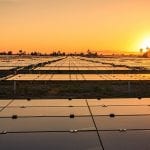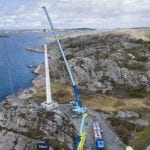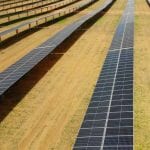Around The Web
Cruise companies accused of refusing to let stranded crew disembark due to cost
Death toll of crew stranded by coronavirus continues to rise as industry blames ‘impractical’ safety requirements for blocking disembarkation
Some cruise companies have refused to agree to rules that would allow tens of thousands of stranded crew back to land, citing concerns about cost and potential legal consequences, according to the US Centers for Disease Control and Prevention (CDC). The largest trade association for the cruise industry has called the CDC’s requirements for disembarkation “impractical”.
The standoff comes amid a deteriorating situation on many ships around the world and a rising death toll of crew members.
Continue reading...The world stopped another Chernobyl by working together. Coronavirus demands the same | Serhii Plokhy
The pandemic reminds me of a different invisible enemy. Once again, coordinated action is the only effective response
Deja vu. In recent days I’ve had that sense more than once. Every time I come home, remove my mask and wash my hands, I start thinking whether it is safe to keep on wearing the clothes that I had on outside. What if they are contaminated by the virus? Well, I can change clothes, but what if the particles have already jumped somewhere else, and are now in my home? Some would call it paranoia. I call it deja vu. I recognise those thoughts and remember the feelings.
That is because I first experienced them more than 30 years ago, in May 1986, on a trip to Kyiv, then the capital of Soviet Ukraine. It was a few weeks after the explosion at the Chernobyl nuclear reactor, and I was in the city – about 100km from the disaster area – on a business trip. We already knew that there was radiation in the air. Water trucks were spraying the streets, foreign students were leaving the city, and overseas broadcasters like the BBC were telling us to stay inside. But our own government was sending confusing and distressing messages: there is absolutely no danger, but make sure you keep children inside, and pregnant women too. Oh, and close your windows when you are at home.
Continue reading...Lead US climate negotiator departs for sustainability consultancy
ARENA funds study into smarter solution for system strength issues plaguing solar, wind projects
 Powerlink gets ARENA funding to look at system strength issues and smarter solutions that may include battery storage, and a more centralised approach.
Powerlink gets ARENA funding to look at system strength issues and smarter solutions that may include battery storage, and a more centralised approach.
The post ARENA funds study into smarter solution for system strength issues plaguing solar, wind projects appeared first on RenewEconomy.
Climate change: More than 3bn could live in extreme heat by 2070
Modvion erects first wooden wind power tower in Sweden
 Swedish engineering and industrial design company Modvion erectS Sweden’s first wooden wind tower, billed as being “as strong as steel”.
Swedish engineering and industrial design company Modvion erectS Sweden’s first wooden wind tower, billed as being “as strong as steel”.
The post Modvion erects first wooden wind power tower in Sweden appeared first on RenewEconomy.
Covid-19 is giving the thermal coal sector a look at its long-term future
 As the economic impact of the coronavirus takes its toll, Australian thermal coal prices are now at their lowest level since 2016. This week the price for high energy Newcastle thermal coal dropped to US$50.60 a tonne, down around 25% already since January. Initially, COVID-19’s impact on energy prices has been focussed on oil. With...
As the economic impact of the coronavirus takes its toll, Australian thermal coal prices are now at their lowest level since 2016. This week the price for high energy Newcastle thermal coal dropped to US$50.60 a tonne, down around 25% already since January. Initially, COVID-19’s impact on energy prices has been focussed on oil. With...
The post Covid-19 is giving the thermal coal sector a look at its long-term future appeared first on RenewEconomy.
Gas stoves making indoor air up to five times dirtier than outdoor air, report finds
Gas cookers making people sick and exposing tens of millions to air pollution levels that would be illegal if they were outside
Gas stoves are making people sick, contributing pollution that makes indoor air up to two to five times dirtier than outdoor air, according to a new report.
Related: Microplastics found in greater quantities than ever before on seabed
Continue reading...Australian industry body wants to link offsets with renewable crediting
One billion people will live in insufferable heat within 50 years – study
Human cost of climate crisis will hit harder and sooner than previously believed, research reveals
The human cost of the climate crisis will hit harder, wider and sooner than previously believed, according to a study that shows a billion people will either be displaced or forced to endure insufferable heat for every additional 1C rise in the global temperature.
In a worst-case scenario of accelerating emissions, areas currently home to a third of the world’s population will be as hot as the hottest parts of the Sahara within 50 years, the paper warns. Even in the most optimistic outlook, 1.2 billion people will fall outside the comfortable “climate niche” in which humans have thrived for at least 6,000 years.
Continue reading...We created the Anthropocene, and the Anthropocene is biting back | Alastair Gee, Dani Anguiano
It’s clear from a recent litany of disasters – from the coronavirus pandemic to America’s deadliest wildfire in a century – there are forces that cannot be domesticated
About 12,000 years ago, human domestication of the natural world began in earnest with the intentional cultivation of wild plants and animals. Fast forward to today and our dominion over the planet appears complete, as 7.8 billion of us multiply across its surface and our reach extends from the deep-sea beds, which are being mined, to the heavens, where we are, according to Donald Trump, dispatching a space force.
Yet as has been made clear by a recent litany of disasters – from the coronavirus pandemic to America’s deadliest wildfire in a century – there are forces that cannot be domesticated. Indeed, our interference with the natural world is making them more liable to flare up into tragedy. We created the Anthropocene, and the Anthropocene is biting back.
Continue reading...Conservation in crisis: why Covid-19 could push mountain gorillas back to the brink
Once a step away from extinction, their survival was a rare success story. But groundbreaking gorilla conservation is now in peril
As he clambers down the forested ravine, soil slipping beneath his boots, Dr Fred Nizeyimana knows they are close. “I can smell them,” he says, just before the mountain gorillas come into view high in the canopy, plucking leaves and chomping on the vegetation. An adult female slides down a tree, a flash of black fur and elongated limb. More follow, with infants and juveniles in tow. A grunting silverback descends to join its family, the branches buckling beneath approximately 180kg (400lb) of iconic primate.
Continue reading...Conservation in crisis: ecotourism collapse threatens communities and wildlife
From Kenya to the Seychelles, coronavirus has dealt a devastating blow to efforts to protect endangered wildlife
From the vast plains of the Masai Mara in Kenya to the delicate corals of the Aldabra atoll in the Seychelles, conservation work to protect some of the world’s most important ecosystems is facing crisis following a collapse in ecotourism during the Covid-19 pandemic.
Organisations that depend on visitors to fund projects for critically endangered species and rare habitats could be forced to close, according to wildlife NGOs, after border closures and worldwide travel restrictions abruptly halted millions of pounds of income from tourism.
Continue reading...NSW government issues call-out for electric bus trial participants
 NSW government seeks expressions of interest to conduct trials of all-electric buses ahead of a wider, fleet-wide rollout.
NSW government seeks expressions of interest to conduct trials of all-electric buses ahead of a wider, fleet-wide rollout.
The post NSW government issues call-out for electric bus trial participants appeared first on RenewEconomy.
Fossil fuel-backed climate deniers rush to promote Michael Moore’s ‘Planet of The Humans’
 Climate science deniers and long-time opponents of renewable energy have seized on Michael Moore’s new documentary to argue for continued fossil fuel dependence.
Climate science deniers and long-time opponents of renewable energy have seized on Michael Moore’s new documentary to argue for continued fossil fuel dependence.
The post Fossil fuel-backed climate deniers rush to promote Michael Moore’s ‘Planet of The Humans’ appeared first on RenewEconomy.
Green stimulus can repair global economy and climate, study says
Projects will deliver higher returns amid Covid-19 crisis than conventional spending, researchers claim
Green economy recovery packages for the coronavirus crisis will repair the global economy and put the world on track to tackle climate breakdown, but time is running out to implement the changes needed, new analysis has shown.
Projects which cut greenhouse gas emissions as well as stimulating economic growth deliver higher returns on government spending, in the short term and in the longer term, than conventional stimulus spending, the study from Oxford University found.
Continue reading...Mixed messages on “clean hydrogen” leave door open for fossil fuels
 Conflicting messages from the Morrison government raise suspicions that a $300m 'clean hydrogen' fund could be channelled into the fossil fuel sector.
Conflicting messages from the Morrison government raise suspicions that a $300m 'clean hydrogen' fund could be channelled into the fossil fuel sector.
The post Mixed messages on “clean hydrogen” leave door open for fossil fuels appeared first on RenewEconomy.
Exodus from Kiev: aftermath of Chernobyl nuclear accident - archive, 5 May 1986
5 May 1986: Moscow has seen many Russians arriving by train from Kiev in the disaster area
Moscow
The first real signs of alarm among the Soviet public began to emerge over the weekend as Russians arriving by train from Kiev in the Chernobyl disaster area, began saying frankly that they were worried by radiation.
In the last two days large numbers of unescorted children have been arriving here from the city by train, to be met by relatives and grandparents.
Related: From the archive, 30 April 1986: Russia admits blast as death fears rise
Continue reading...Biosar paid $40 million to extract itself from delayed Australian solar projects
 Greek-based Ellaktor reveals its Biosar susbsidiary paid $40 million to enact "stop-loss" deals and end its involvement in loss making solar projects in Australia.
Greek-based Ellaktor reveals its Biosar susbsidiary paid $40 million to enact "stop-loss" deals and end its involvement in loss making solar projects in Australia.
The post Biosar paid $40 million to extract itself from delayed Australian solar projects appeared first on RenewEconomy.
AGL sees more signs of “dawn of battery age” in increased household demand
 AGL says increased interest from households in battery storage reinforces its view that Australia is at "dawn of battery age."
AGL says increased interest from households in battery storage reinforces its view that Australia is at "dawn of battery age."
The post AGL sees more signs of “dawn of battery age” in increased household demand appeared first on RenewEconomy.



